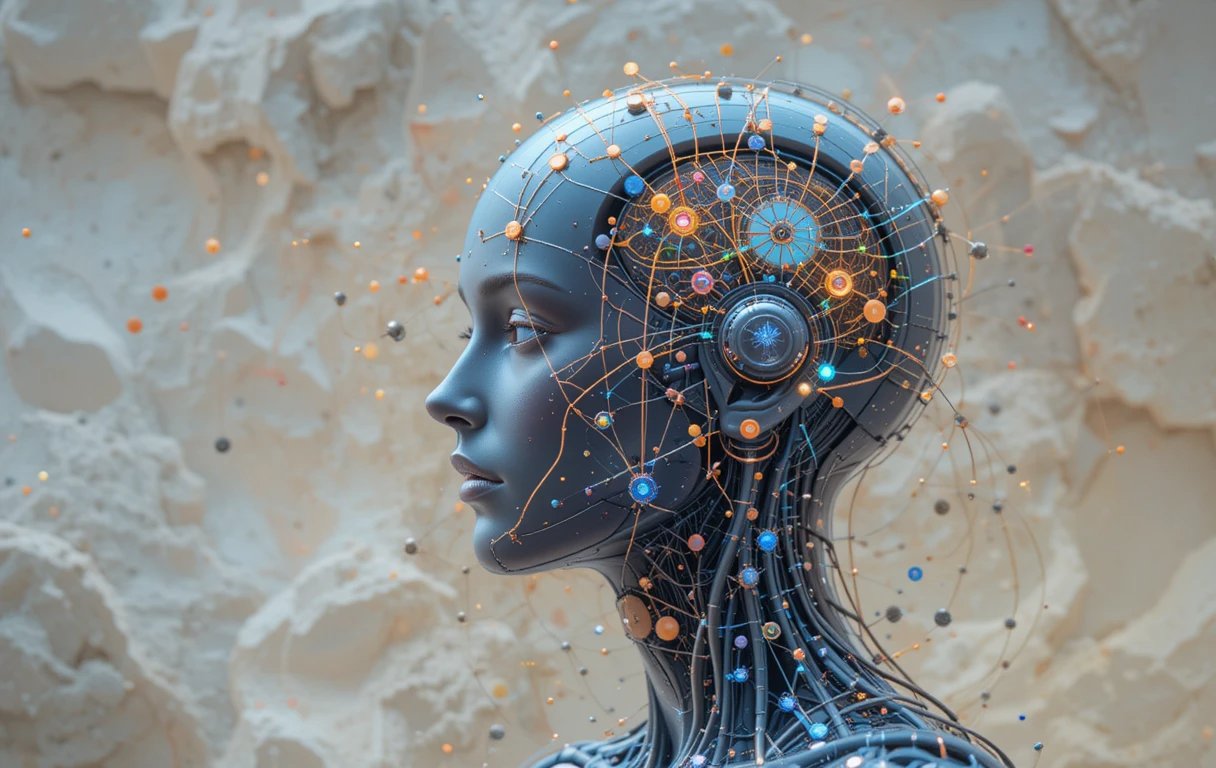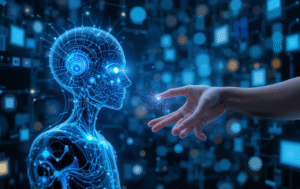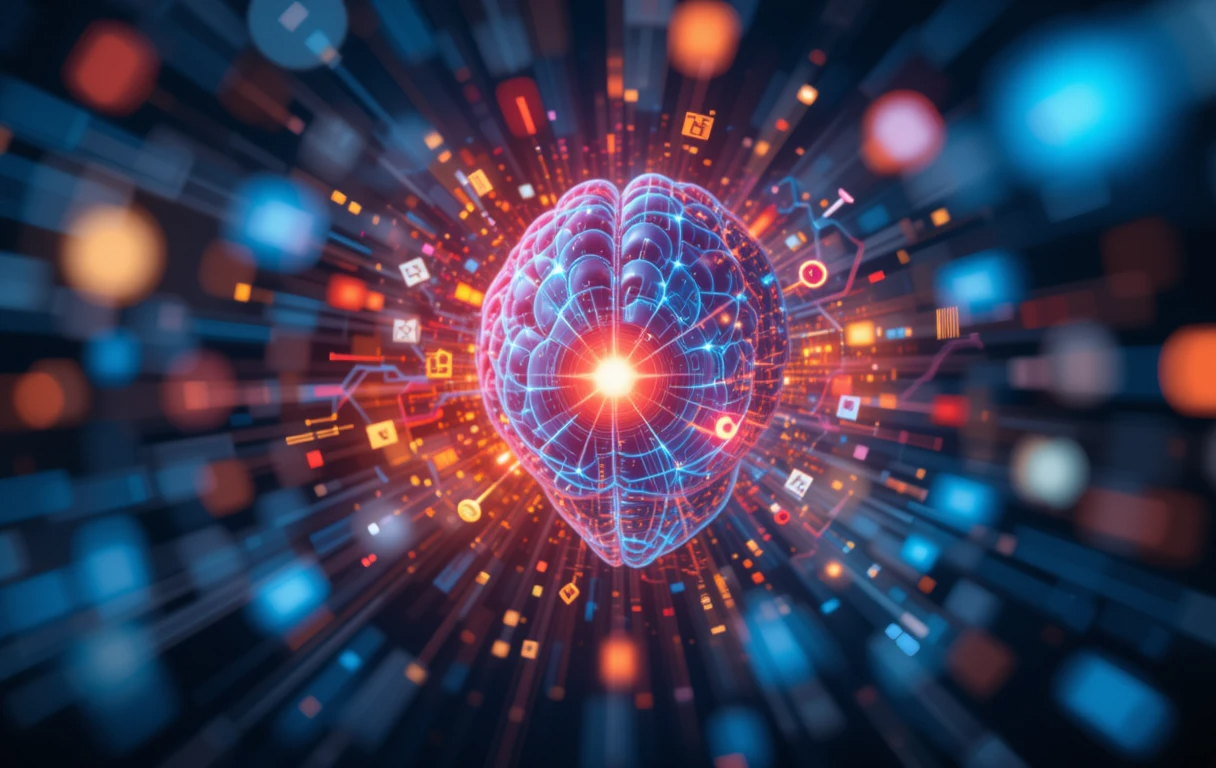In a world where technology evolves at breakneck speed, traditional education alone is no longer sufficient. The once-linear model of learning—school, college, then career—is being replaced by a fluid, lifelong journey. Today’s professionals must continuously upskill to stay relevant. This is where artificial intelligence (AI) steps in as a powerful catalyst.
AI isn’t just transforming classrooms—it’s redefining how adults learn, reskill, and grow in their careers. From personalized learning platforms to intelligent career coaching, AI is becoming a central force in lifelong learning and professional development.
In this in-depth post, we explore how AI is revolutionizing adult education, corporate training, and individual growth, shaping the future of work and learning.
🎓 Why Lifelong Learning Matters More Than Ever
Lifelong learning refers to the ongoing, voluntary pursuit of knowledge for personal or professional reasons. In today’s rapidly changing job market, it’s more than a luxury—it’s a necessity.
Key Drivers:
- Technology Disruption: Automation and AI are replacing repetitive tasks, creating demand for new skill sets.
- Changing Job Roles: Many jobs today didn’t exist 10 years ago—and more will appear in the next decade.
- Gig Economy Growth: Freelancers and contract workers need to keep their skills sharp and diversified.
- Career Switching: People now change careers multiple times throughout their lives.
Lifelong learning is the bridge between where professionals are and where they need to be.
🤖 How AI Supports Lifelong Learning
AI tools help adult learners by personalizing education, automating guidance, and tracking progress at scale. Here’s how:
1. 🧠 Personalized Learning Paths
AI analyzes:
- User behavior
- Skill gaps
- Career goals
- Learning preferences
Then it recommends a custom learning plan—similar to how Netflix suggests shows. Platforms like Coursera, Udemy, and LinkedIn Learning already use this technique to guide users to the most relevant content.
2. 📊 Intelligent Skill Assessments
AI-based tools can assess your skills through:
- Interactive quizzes
- Code simulations
- Case study analysis
They then provide feedback and suggest targeted learning resources. No need to guess what to learn next.
3. 👩🏫 Virtual AI Mentors and Coaches
AI-powered chatbots and assistants offer:
- Real-time help during courses
- Career guidance based on industry trends
- Resume feedback
- Practice interviews with intelligent responses
Think of them as on-demand career counselors available 24/7.
4. 🗣️ Natural Language Processing (NLP)
AI-driven NLP powers:
- Real-time translation and subtitles
- Speech-to-text for note-taking
- Summarization of long articles
- AI-generated quizzes based on uploaded content
This enhances accessibility and comprehension, especially for non-native English speakers.
5. 🔁 Adaptive Learning Systems
These systems adjust content difficulty in real-time based on learner performance. Struggling with a concept? It simplifies. Excelling? It advances to harder material. This keeps motivation high and frustration low.
🏢 AI in Corporate Training
Organizations are embracing AI to improve employee development and drive performance.
AI in Action:
- Skill Mapping: Identifies current employee skills vs. what’s needed for future roles.
- Automated Learning Paths: Recommends training based on job roles or performance data.
- Sentiment Analysis: Measures learner engagement and satisfaction during training.
- Virtual Reality (VR) + AI: Immersive simulations for complex tasks like surgery, customer service, or crisis management.
- Predictive Analytics: Forecasts which employees are at risk of underperformance or turnover and suggests training interventions.
Companies like IBM, Accenture, and SAP are leading the charge in using AI for workforce upskilling.
📚 AI-Powered Learning Platforms for Adults
Here are some AI-driven platforms leading the lifelong learning revolution:
| Platform | AI Features | Best For |
|---|---|---|
| LinkedIn Learning | Recommends courses based on job role, skills, and browsing behavior | Professionals looking to upskill |
| Coursera | Personalized learning plans, auto-graded quizzes, and performance tracking | College-level courses and certificates |
| Duolingo | AI-driven language learning, speech recognition | Learning new languages |
| Khan Academy | Adaptive exercises, mastery learning | Foundational knowledge and reskilling |
| Skillsoft | AI-based assessments, career paths, and leadership training | Enterprise learning solutions |
These platforms leverage AI not just to teach, but to engage and retain learners long-term.
🌎 Global Trends: How Countries Are Adapting
Governments and organizations worldwide are implementing AI into adult education strategies.
Examples:
- Singapore: Launched “SkillsFuture,” an AI-driven initiative offering lifelong learning credits and personalized course recommendations.
- Germany: Uses AI in vocational training programs and industry apprenticeships.
- India: National Skill Development Corporation partners with AI startups to train millions in digital and data skills.
- USA: Community colleges and workforce agencies are integrating AI platforms into retraining programs for displaced workers.
AI is proving vital in addressing global skills gaps and ensuring workforce readiness.
🧑🎓 Case Studies: Real-Life Examples of AI in Lifelong Learning
1. Lisa, a Marketing Professional
Lisa wants to transition into digital product management. She logs into Coursera and receives a personalized course track based on her LinkedIn profile and browsing history. An AI chatbot helps her map a six-month learning plan and reminds her to complete weekly milestones.
2. Raj, a Factory Worker in Transition
Raj’s job is becoming obsolete due to automation. A government-sponsored AI program assesses his strengths, suggests IT support courses, and connects him with online mentors. After six months, Raj secures a job in tech support.
3. Emma, a Freelancer
Emma uses Copy.ai and Jasper to generate content ideas and edits her work using Grammarly’s AI. She learns new tools through YouTube’s AI-curated playlists based on her behavior and search queries.
These examples show how AI makes learning personal, accessible, and goal-oriented.
⚖️ The Benefits of AI in Lifelong Learning
1. 🎯 Goal-Oriented Learning
AI maps your learning to specific goals—whether it’s getting a certification, switching careers, or learning a new tool.
2. 🕒 Flexibility and Efficiency
On-demand, mobile-first learning fits into busy adult schedules. AI even suggests bite-sized modules during your most productive times.
3. 🌐 Accessibility for All
With voice-to-text, auto-translation, and screen-reading, AI empowers learners with disabilities or those in remote regions.
4. 💡 Data-Driven Progress
Learners and employers can see tangible progress through dashboards, badges, and analytics.
5. 🧘 Reduced Overwhelm
Too many options can paralyze learners. AI cuts through the noise and curates only the most relevant paths.
⚠️ Challenges and Ethical Concerns
Despite its promise, AI in adult education presents some serious concerns:
1. 🔐 Privacy
Platforms collect sensitive data—educational history, interests, career goals. This must be protected under robust data policies.
2. ⚖️ Bias in Algorithms
AI might prioritize certain skills or careers based on biased datasets, affecting fairness in course recommendations or hiring decisions.
3. 🧑💼 Replacement Anxiety
Some employees fear AI will replace their jobs. Education must emphasize how AI can enhance roles rather than eliminate them.
4. 📉 Motivation and Completion Rates
Even with personalization, many adult learners abandon online courses. AI must evolve to become better at nudging, motivating, and retaining learners.
🔮 The Future: What to Expect in the Next Decade
Here’s what we can anticipate in the future of AI-powered lifelong learning:
| Year | Predictions |
|---|---|
| 2025 | AI mentors become standard in major platforms |
| 2026-2027 | Employers offer AI-personalized learning as part of benefits |
| 2028 | AI predicts future job trends and helps learners prepare |
| 2029 | Immersive AI + VR experiences replace traditional corporate training |
| 2030 | Lifelong learning credits tied to AI-driven skills passports |
| 2031-2032 | AI curates personalized degree alternatives based on real-world skills |
Lifelong learning will no longer be optional—it will be embedded in how we live, work, and grow.
✅ Final Thoughts: Empowering Adults Through Intelligent Learning
AI is democratizing lifelong learning. Whether you’re 22 or 62, switching careers or scaling new heights, AI provides the tools to keep growing. It doesn’t just tell you what to learn—it helps you understand why, how, and when to learn it.
The future of professional development is intelligent, personalized, and dynamic. AI will not just help us adapt to change—it will help us lead it.
As we embrace this new era, the most important skill might just be the ability to keep learning—with AI as our lifelong partner.



